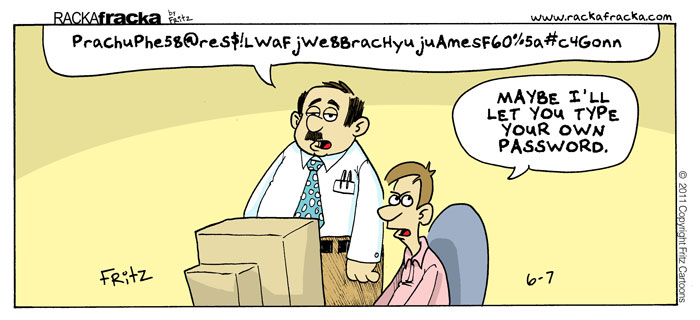I get the (too) occasional email from a client whose email, site, or account of some kind was hacked. Yes, there are backdoor tricks, SQL injections, and all kinds of other fancy ways to get into a site. A bit like if a burglar wants to get into your house, he’s going to get in. That said, the least you can do is at least make it a little harder so he looks at the place and moves on. The easiest–and best–way to protect yourself is through strong passwords. If you don’t want to create–or remember–them yourself, I can highly recommend services such as LastPass which do all of the heavy lifting for you.
Here are a few guidelines to stronger passwords.
- It needs to use special characters: e.g. @#$%^& etc.
- It must be at least 8 characters.
- It shouldn’t use any common words such as 123, password, your birth date, your login name and any words that can be found in the dictionary–or in your address book.
- It should use a variation of capitalization and lowercase letters.
Fritz Wall (of fritzcartoons.com) puts it into perspective below with a hand-drawn cartoon.
Also just read this today on Lifehacker: Should I Change My Password? Quickly Checks if Your Password Was Compromised in a Recent Hack








It’s always most important that we should use complex password
Google Fonts, columns, some custom color choices. Thank you very much: done.
You know, i think always from the point of view of the hacker. If its something what you have that hackers want than you should use complex passwords. otherwise just use one password that is easy to remember for everything else. or am i totally wrong here.
I use three different pw, one simple two complex, it helps that with some odd font in your password though.